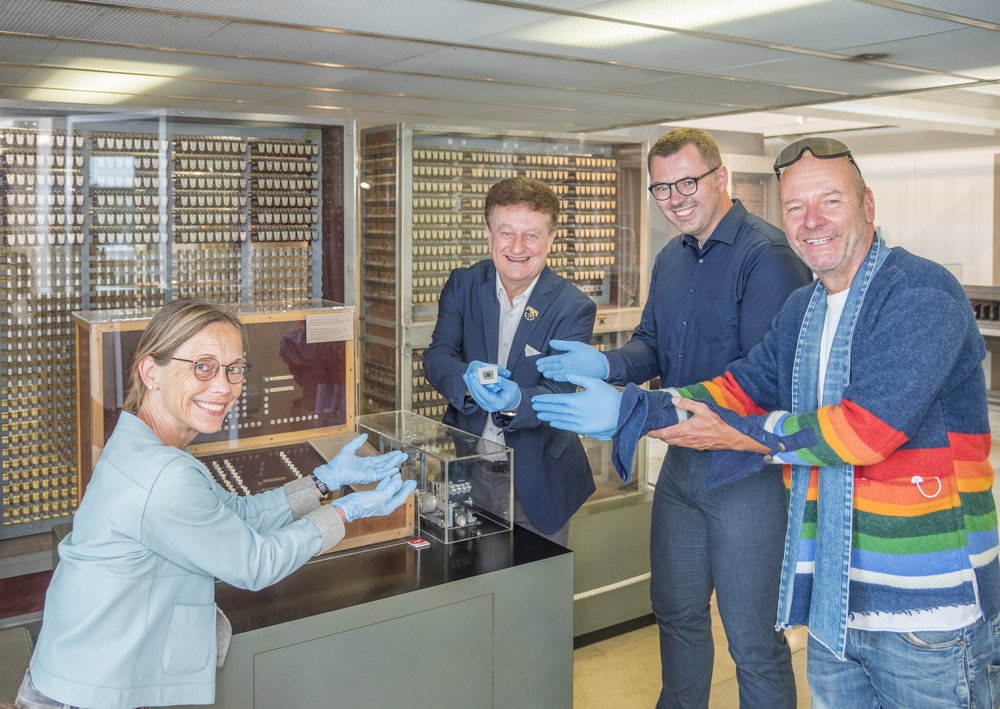Our quantum processor at the Deutsches Museum
In 2019, our Quantum AI team achieved a beyond-classical computation by outperforming the world’s fastest classical computer. Today, a quantum processor from the Sycamore generation that accomplished this important computing milestone will be donated to the Deutsches Museum of Masterpieces of Science and Technology in Munich, Germany.
The Deutsches Museum has one of the largest collections of science and technology artifacts in the world. This means that the Sycamore will share the same exhibition space as some of the world’s most important technological achievements: like the roundest object in the world – a silicon sphere that gives the kilogram a new definition; the Z3, one of the earliest computers; the Wright Flyer, considered the first serial motor plane; and automotive history from the first diesel engine to the Waymo Firefly. The museum has a long history of preserving artifacts that mark the start of new eras in science and technology, which is why we’re honored to have the Sycamore processor among these exhibits. The beyond-classical experiment ushered in a new era for exploring near-term quantum algorithms that could have tangible benefits to society, for example—design more efficient batteries, create fertilizer using less energy, and figure out what molecules might make effective medicines.

Handover of the Sycamore processor in front of Zuse‘s Z3 computer. Luise Allendorf-Hoefer, Curator electronics, Deutsches Museum, Wolfgang M. Heckl, Director General, Deutsches Museum, Markus Hoffmann, Google Quantum AI Partnerships and Hartmut Neven, Director, Google Quantum AI.
This also marks an important milestone in the collaboration between Google Research and Germany’s burgeoning quantum community. Since Google has a research presence in Munich and Berlin, it has given us the opportunity to partner with several German organisations to explore the future of quantum computing. For example, the Sycamore processor has already been used by some of our industrial research partners, like Volkswagen and Mercedes-Benz, and will be the foundation for experiments designed with Boehringer Ingelheim, Covestro and BASF.
If you can’t travel to Munich to visit the Deutsches Museum in person, don’t forget that you can take a virtual trip through Google Arts & Culture.
by Hartmut NevenGoogle Quantum AI via The Keyword
Comments
Post a Comment